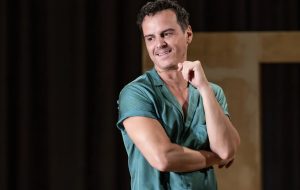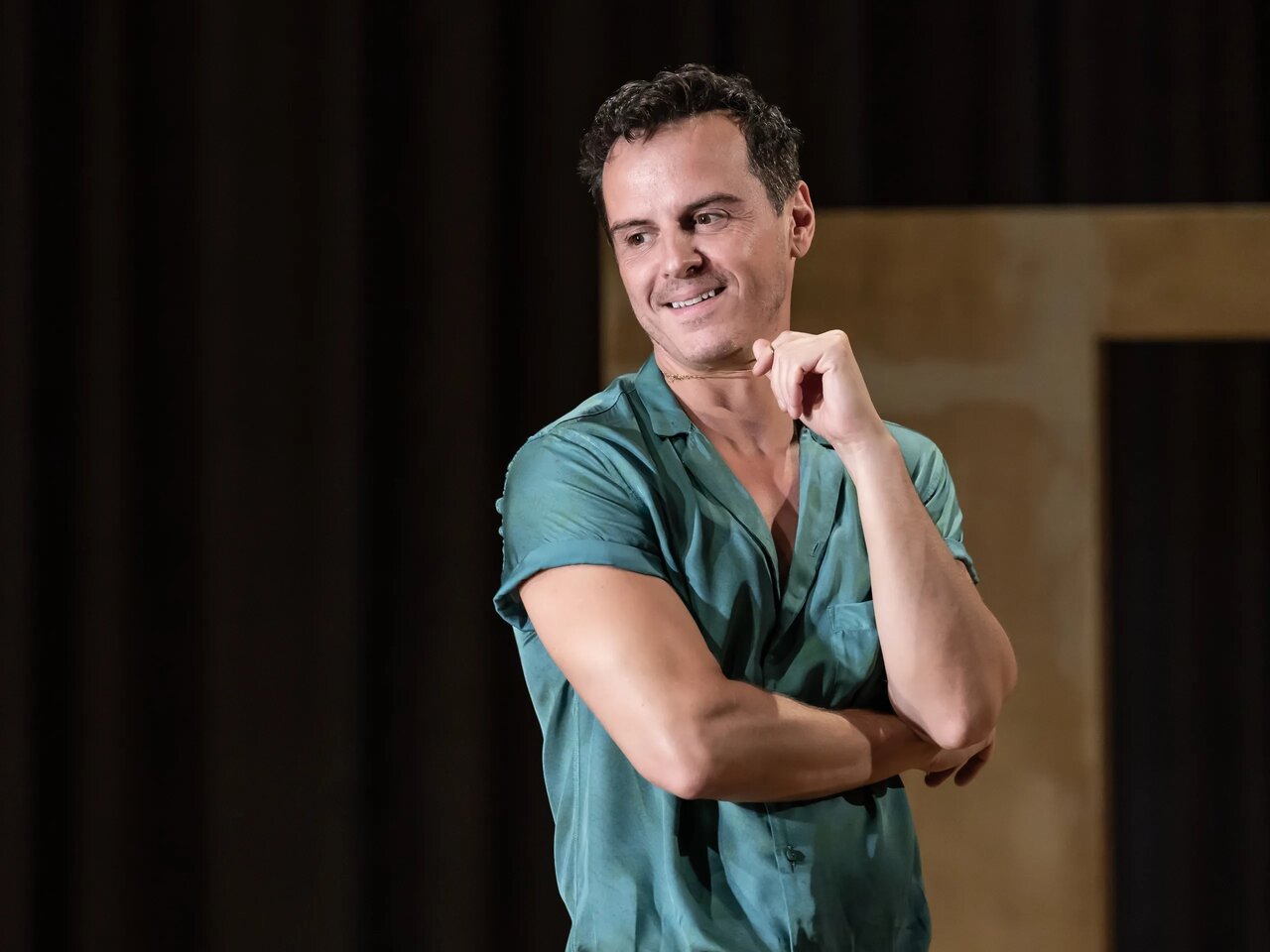IAF cinematheque to screen Royal National Theatre’s “Vanya”
TEHRAN- The Cinematheque of the Iranian Artists Forum (IAF) is scheduled to screen a recorded stage performance of the Royal National Theatre’s adaptation of Russian playwright Anton Chekhov’s play ” Uncle Vanya” on Wednesday. Following the screening, there will be a review session featuring Iranian theater critics Abbas Ghafari and Aran Qaderpur. Titled “Vanya,” this


TEHRAN- The Cinematheque of the Iranian Artists Forum (IAF) is scheduled to screen a recorded stage performance of the Royal National Theatre’s adaptation of Russian playwright Anton Chekhov’s play ” Uncle Vanya” on Wednesday.
Following the screening, there will be a review session featuring Iranian theater critics Abbas Ghafari and Aran Qaderpur.
Titled “Vanya,” this one-man production of the National Theatre is directed by British director Sam Yates and features Irish actor Andrew Scott in the lead role.
“Uncle Vanya,” written by Chekhov in 1897, is a profound exploration of human emotion and existential angst set against the backdrop of a rural Russian estate. The play delves into themes of unfulfilled dreams, the passage of time, and the complexities of love and disappointment. Chekhov’s work stands out for its nuanced character development, subtle humor, and reflective dialogue, offering a rich tapestry of interpersonal dynamics.
The play centers around the character of Ivan Petrovich Voynitsky, affectionately known as Uncle Vanya, who has devoted his life to managing the estate of his late brother. His life takes a dramatic turn with the arrival of Professor Serebryakov, a self-absorbed scholar who has returned with his young, beautiful wife, Yelena. Vanya and his mother, Maria, who have dedicated themselves to maintaining the estate in the professor’s absence, find themselves disillusioned and resentful toward the professor’s apparent arrogance and indifference.
As the plot unfolds, the characters grapple with their desires and frustrations. Vanya, who harbors unrequited love for Yelena, begins to confront the futility of his sacrifices. Meanwhile, Astrov, a local doctor who is also enamored with Yelena, serves as a voice of social conscience, lamenting the decline of the environment and the impact of human actions on nature. His philosophical musings highlight the disconnection between aspiration and reality, a recurring motif in Chekhov’s body of work.
One of the striking aspects of “Uncle Vanya” is its structure. Unlike traditional plays with dramatic climaxes, Chekhov employs a more naturalistic approach, allowing moments of introspection and quiet despair to permeate the narrative. The characters often engage in conversations that seem mundane but are laced with deeper existential questions. This technique invites the audience to reflect on their own lives and the universal struggles of identity and purpose.
Ultimately, “Uncle Vanya” paints a poignant portrait of life’s disappointments and unfulfilled potential. As the characters confront their dreams and realities, the play resonates with anyone who has experienced the weight of yearning and the passage of time. Chekhov’s brilliance lies in his ability to encapsulate the human experience with both tenderness and an unflinching gaze, making “Uncle Vanya” a timeless exploration of the complexities of life, love, and loss. In its rich characterization and thematic depth, the play remains a cornerstone of world literature, continually inviting interpretation and reflection.
SAB/
